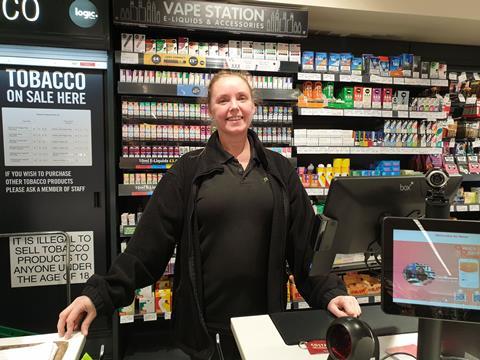
The importance of convenience stores as employment within local communities has been highlighted by new research from the Association of Convenience Stores (ACS).
The ACS Employment Survey and ACS Colleague Survey revealed that 98% of colleagues working in the sector are on permanent contracts, and as a result 83% of colleagues feel secure in their current role.
The research also found that the majority of colleagues are also drawn from the local community with 47% walking to work with an average commute time of just 13 minutes per day.
These findings been used to inform ACS’ submission to the Low Pay Commission (LPC) on setting the National Living Wage rate in April 2025. ACS advised a cautious approach to future wage rates in 2025, now that the government has reached its median earnings target.
Chief executive James Lowman said: “We are proud of the local, secure and flexible employment opportunities that we offer to people across the country. To maintain these employment opportunities we need the Low Pay Commission to recommend affordable rates that reward colleagues and allow local shops to continue to thrive and play their vital role in more communities than any other business sector.”
The submission to the LPC outlined that retailers have responded to rising wage rates by reducing the amount they invest in their business (53% of stores), increasing prices (53%), reducing staff hours (47%), and taking lower profits/absorbing the costs (47%).
Lowman added: “We have seen a period of unusually fast growth in the cost of products and energy, and higher interest rates for businesses borrowing to invest, at a time when consumers are ever more conscious of value. Decisions on statutory wage rates need to be sensitive to these challenges and in particular their impact on business investment. The Low Pay Commission has a difficult balance to strike and we hope our Employment Survey will help them to do this.”
In April 2024, the National Living Wage for those aged 21 and over rose to £11.44 per hour an increase of £1.02 per hour. In March, the LPC projected an increase to £11.89 per hour (with a range of £11.61-£12.18 per hour) in April 2025, however it did caution that this projection was “uncertain”. The LPC will submit a final report to the Prime Minister and the Secretary of State for Business and Trade by the end of October 2024.










![WG-4003[58]](https://d2dyh47stel7w4.cloudfront.net/Pictures/274x183/4/5/1/353451_wg400358_6083.jpg)

















1 Readers' comment